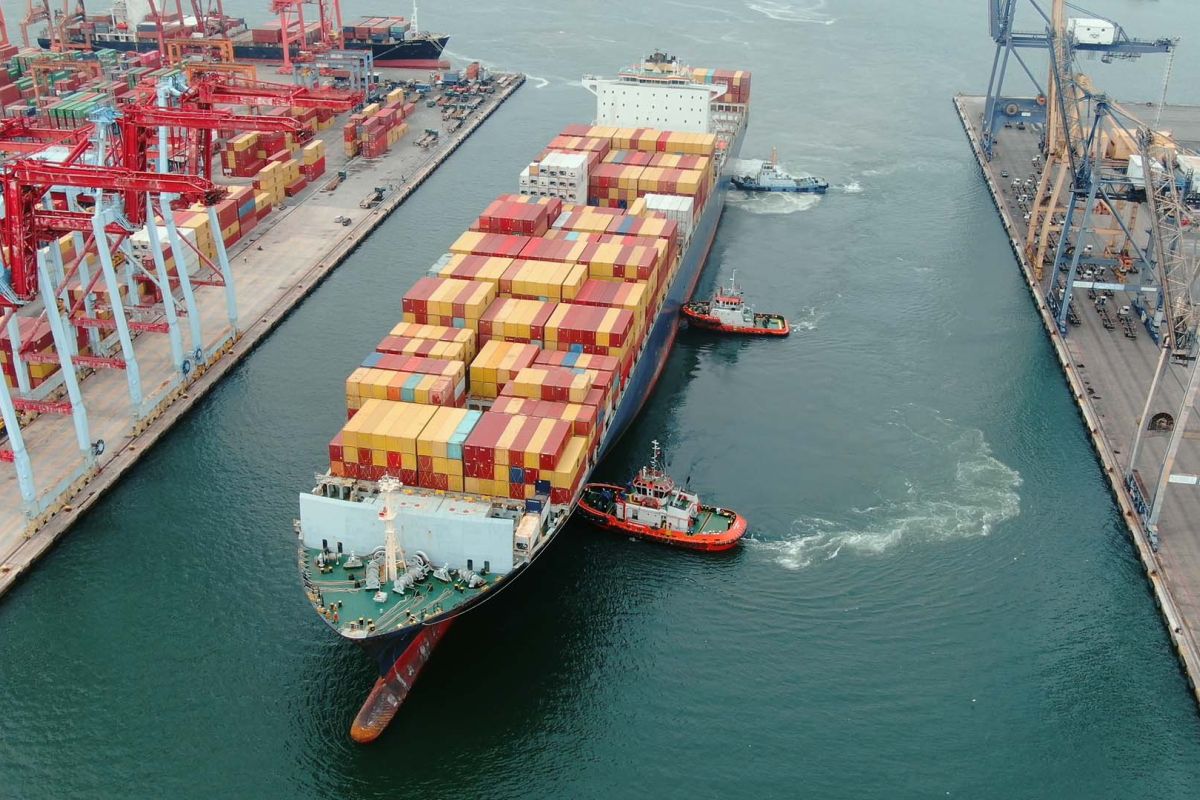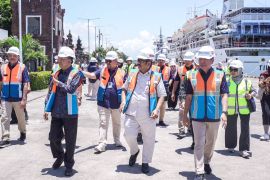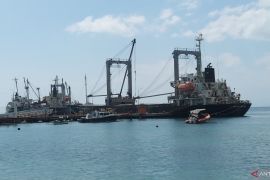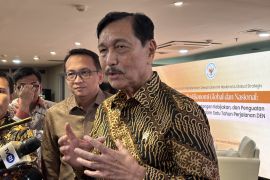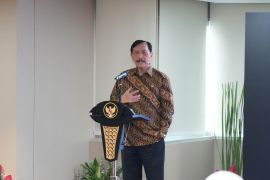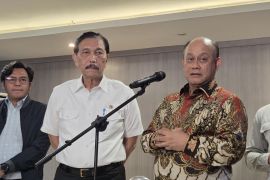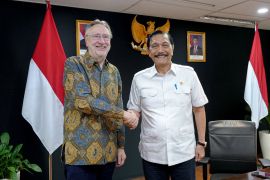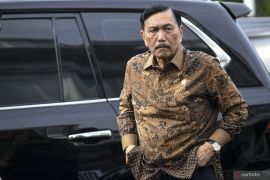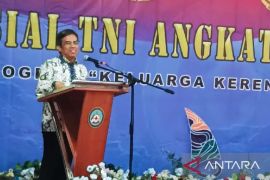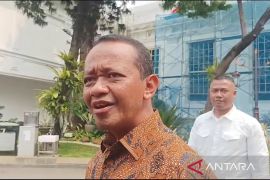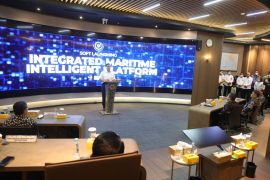Pandjaitan noted that in order to pursue that goal, national development should prioritize maritime development through planning and implementation, which considered Indonesia's identity as a massive archipelagic country.
"Everyone must pay great attention to maritime development. We start by synchronizing our understanding in the maritime aspect. Improving the nation's literacy in the maritime sector is the initial measure. However, it must not take too long and cease there. We must push forward with real actions to regain glory in marine life. In fact, we are victorious at sea," the minister noted in an official statement received here on Friday.
Pandjaitan also remarked that maritime activities were not only sea-related activities.
The study on maritime economy had resulted in an understanding of the maritime economy as an economic activity that occurred in the maritime areas and activities in other places that utilized natural resources originating from water bodies as well as activities at other places that produced goods and services to be utilized in water bodies.
Hence, industries located on land that process natural resources from the waters also include maritime economic activities. The same also applies for industries that produce equipment for exploration, exploitation, and conservation of water areas.
In addition, the minister expects Indonesia to improve maritime development, since ages back, Indonesia lived in glory in terms of the maritime aspect.
"Hence, future maritime development must be aimed at reclaiming the maritime glory as a strong maritime country and a superior maritime nation as in the past. We must return to being the Center of Global Maritime Civilization," he reiterated.
Related news: Tanjung Emas, Kalibaru ports to be logistics activity centers: Thohir
Moreover, he said that improving the maritime economy was not the final goal in Indonesia's maritime development but rather it was ensuring fair, equitable welfare of the people.
"In terms of welfare, there should no longer be a gap. There should be no disparity in welfare between regions. As an archipelagic country, this is the toughest challenge we face. Hence, we must formulate a smart strategy in developing our maritime affairs," he remarked.
Indonesia can also adopt economic, political, and cultural strategies. The economic strategy was implemented to extensively gauge and develop the maritime economic potential for the sake of just and thorough welfare of the people.
Political strategies were applied to improve maritime sovereignty and resilience as well as good maritime governance. The cultural strategy was also pursued to educate citizens by promoting good character and culture as well as advancing human resources in accordance with the development of marine science and technology.
An interim maritime economic study conducted by the National Research and Innovation Agency and the Coordinating Ministry for Maritime Affairs and Fisheries estimated that Indonesia's maritime gross domestic product in 2020 was valued at Rp1,212 trillion, or 11.31 percent of the national GDP, which was capped at Rp10,722 trillion.
This value decreased by around Rp19 trillion from 2019, which reached Rp1,231 trillion, allegedly as a result of the COVID-19 pandemic. Nonetheless, despite the decline in value, its contribution had increased, from 11.25 percent in 2019 to 11.3 percent in 2020.
The government will also formulate the National Long-Term Development Plan for 2025-2045 in a bid to promote maritime development.
Related news: Indonesia can become global maritime axis: Wantannas
Translator: Ade Irma J, Mecca Yumna
Editor: Rahmad Nasution
Copyright © ANTARA 2022
